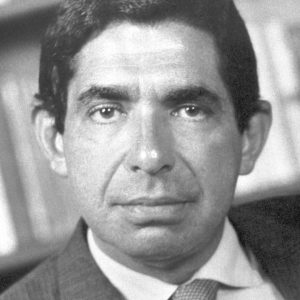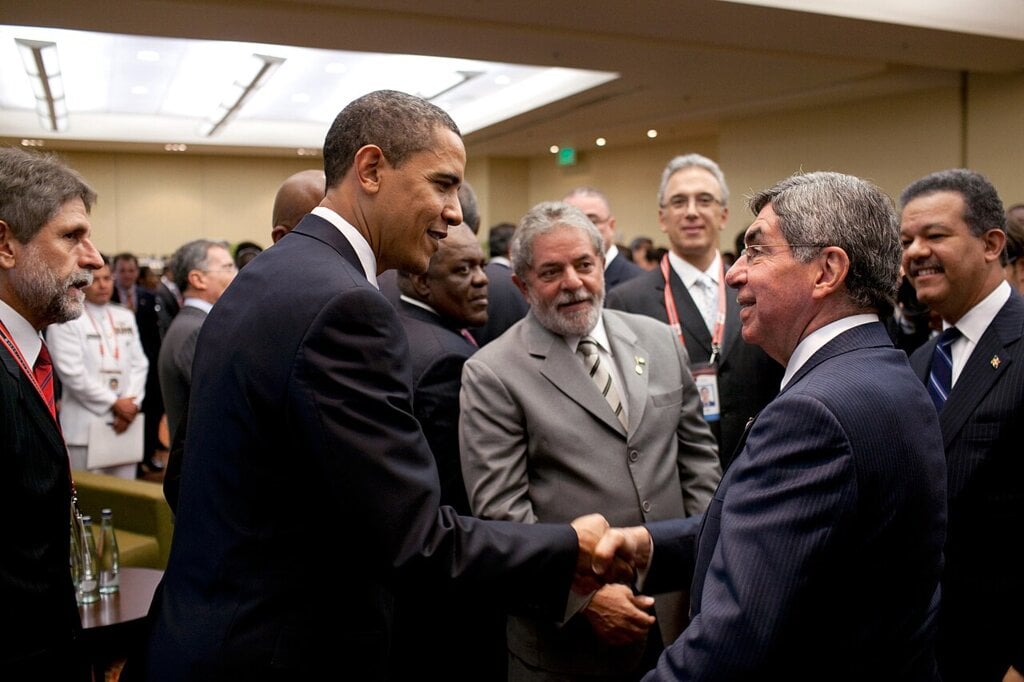Oscar Arias Sánchez
Speed read
Oscar Arias Sánchez was awarded the Nobel Peace Prize for designing a peace plan and promoting lasting peace in Central America.

Full name: Oscar Arias Sánchez
Born: 13 September 1940, Heredia, Costa Rica
Date awarded: 13 October 1987
Peace in Central America
Costa Rica’s President Oscar Arias Sánchez received the Nobel Peace Prize for designing a plan to end the bloody civil wars devastating Central America. The peace plan was adopted by Costa Rica, El Salvador, Guatemala and Nicaragua in August 1987. It called for free elections, the safeguarding of human rights and an end to foreign intervention in Central America’s internal affairs. When Arias Sánchez became president of Costa Rica in 1986, a bitter war was raging in Nicaragua. The USA supported the Contras, a group of insurgents that opposed the Nicaraguan government. Arias Sánchez refused to allow the USA to use Costa Rican territory to support the Contras, and he opposed the US attempt to amend his peace plan. He also directed criticism at the Nicaraguan government for its lack of democracy.
”The only answer for Central America, the answer to its poverty as well as to its political challenges, is freedom from misery and freedom from fear.”
Oscar Arias Sánchez, Nobel Prize lecture, 11 December 1987.
War in Central America
In 1979 the revolutionary Sandinistas assumed power in Nicaragua when the US-backed dictator, Somoza, was ousted. The Sandinistas were left-wing radicals with close ties to Cuba and the Soviet Union. When Ronald Reagan became the US president, he viewed the Sandinistas as communists who threatened US interests throughout Central America. Consequently, he tried to overthrow the Sandinista government. The USA gave financial support, weapons and military training to the insurgents known as the Contras, which led to a civil war in Nicaragua in the 1980s.
A country without a military
Costa Rica does not have military forces, only a civilian police force. Oscar Arias Sánchez maintained that the USA should promote democracy in Central America by fighting poverty instead of wielding its military power. In his Nobel Prize lecture, he said this about his own country: “My country is a country of teachers. It is therefore a country of peace. We discuss our successes and failures in complete freedom. Because our country is a country of teachers, we closed our army camps, and our schoolchildren go with books under their arms, not with rifles on their shoulders. We believe in dialogue, in agreement, in reaching a consensus. We reject violence.”

”Arias impressed those of us who heard him speak and talked with him at Oslo as a man of genuine sincerity, indeed a man desiring peace with all his soul.”
Irwin Abrams, The Nobel Peace Prize and the Laureates, page 272, Science History Publications/USA 2001.
Learn more
Oscar Arias Sánchez was born in 1940. After studying in the United States, he read law and economics at the University of Costa Rica in the capital, San Jose. As a student he engaged actively in the work of the National Liberation Party ...
Disclaimer: Every effort has been made by the publisher to credit organisations and individuals with regard to the supply of photographs. Please notify the publishers regarding corrections.
Nobel Prizes and laureates
Six prizes were awarded for achievements that have conferred the greatest benefit to humankind. The 12 laureates' work and discoveries range from proteins' structures and machine learning to fighting for a world free of nuclear weapons.
See them all presented here.
